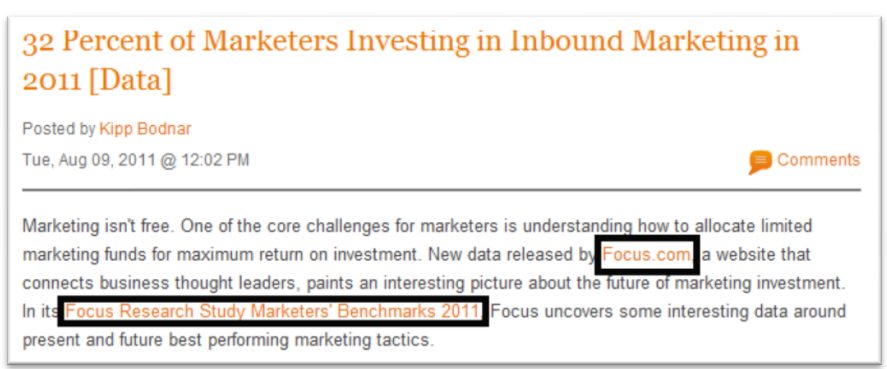Off-page SEO entails building relationships with other websites through the creation of attractive content, or reaching out to the people who run the websites. This process of building relationships is called link building. Who is linking to you, how they are linking to you, and how your content is shared in social networks and across the web are all factors that can have a significant impact on your ability to rank on the SERP
Who‟s Linking to You ?
Since the Internet is essentially an inter-linking network of pages and websites that make up the World Wide Web, not every link is created equal. Links from major publications and blogs usually provide more link juice because they are visited by millions of people each day. Therefore, they have an incredible impact on the ability for webpage to go viral
It is in a newspaper website‟s very nature to link to authoritative websites that relate to current stories and trends. Therefore, these websites are most likely more valuable than others. The same goes for education websites with a .edu domain, since these are reserved for educational institutions. As such, the search engines realize that links to your website from these websites equate to you having more authority
How are they Linking to You ?
Just like when anchor text is used to link an internal webpage to another one of your webpages, the use of anchor text when another website links to you can be extremely helpful in creating relevancy to certain keywords and phrases. If you have the option, always request keyword-rich anchor text for a link that uses your domain. That said, if you have no other option, still take a link with anchor text to your domain. All link juice is good

A common practice in linking building is link trading, or “I will put a link to your website on my website if you put a link to my mine on yours.” These types of links are referred to as reciprocal links. Since all link juice is good link juice, reciprocal links are not prohibited, but their value is certainly not as good as a one-way link to your website. There was most likely a time when reciprocal links were just as good as any other, but the search engines are always getting smarter in determining how much juice a link should receive
Just like any other aspect of SEO, throwing money at link building is bad. Paying others to link to you is strictly prohibited by the search engines. In fact, all paid links must include a tag, called a no-follow tag, which tell the search engines not to give those links credit. If you‟re caught with un-tagged paid links (the linker or the linkee), your website could be suspended from the search engines or blacklisted for good.
Links to your website from advertisements are not counted as inbound links by the search engines. If they discover paid link relationships that are not classified as advertisements, you risk having your website suspended from being listed on the SERP, or even blacklisted if the instance is deemed severe enough.
Using Social Media to Spread Content
Use of social networks like Facebook,Twitter, and LinkedIn has exploded over the last few years. In fact, the latest figures from ComScore suggest that 16% of all time spent online is spent on a social network.iv With hundreds of millions of users across these social networks sharing content they find online with their friends and followers, search engines have begun to take notice
Using Email to Spread Content
Almost any business these days uses email to nurture relationships with their current leads and customers, and utilizes promotional email blasts to attract new ones. It is no surprise that with the death of direct mail over the past few years, email marketing has exploded. It has never been easier to set up an email program, upload your leads, and send them communication. Obviously, the extreme rate at which businesses have adopted email has deteriorated its effectiveness industry-wide. There is so much noise out there that you need to make every email send count.
Just like you need to make the content on your website easy to share in social media, you need to do the same for email. Aside from having clear call-to-action in your emails to nurture your list, drive leads, and convert them to customers, you should also make it easy for your email readers to share the content with friends and post it to social networks. This will increase the reach of your website content and make it easier for you to get inbound links for SEO
